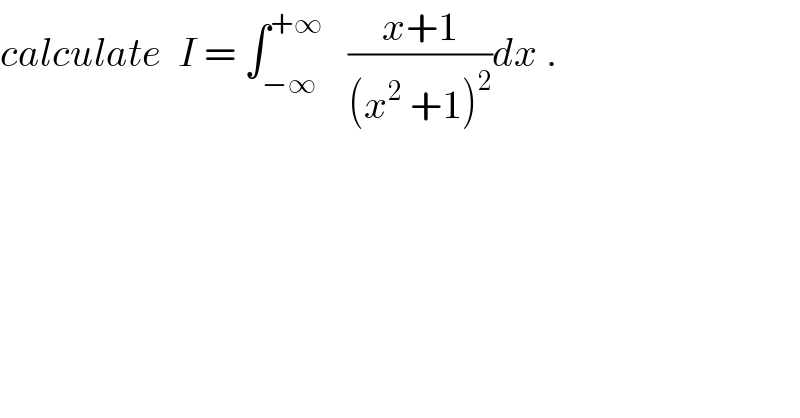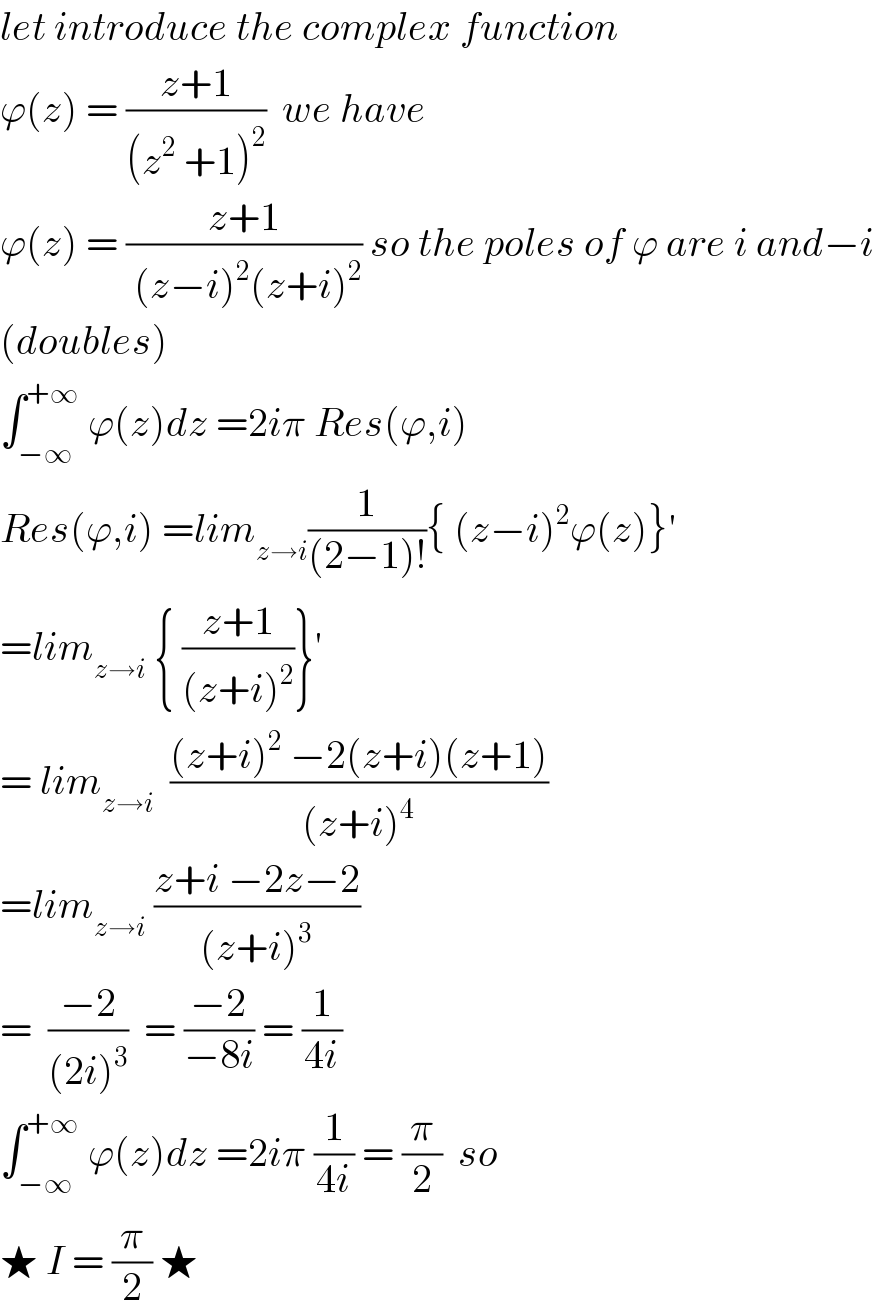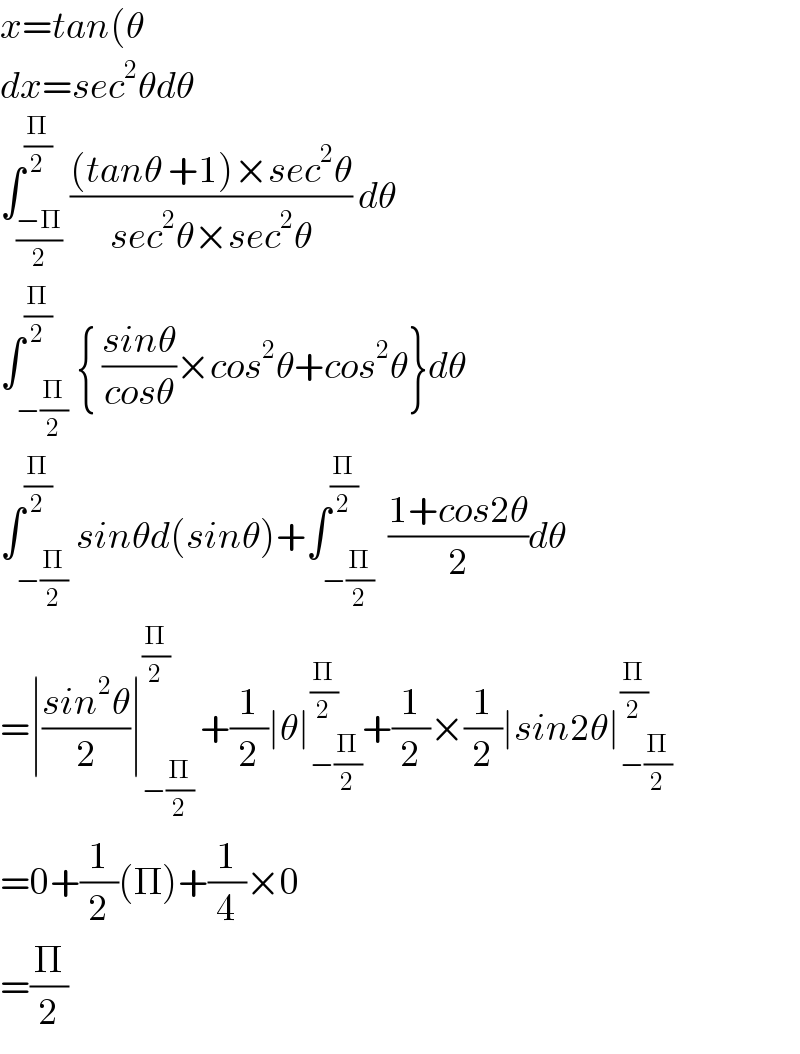
Question and Answers Forum
Question Number 36432 by prof Abdo imad last updated on 02/Jun/18

Commented by abdo mathsup 649 cc last updated on 03/Jun/18

Answered by tanmay.chaudhury50@gmail.com last updated on 02/Jun/18

Commented by abdo mathsup 649 cc last updated on 03/Jun/18

